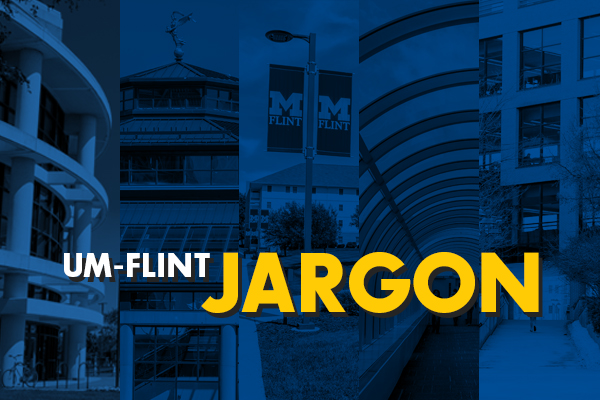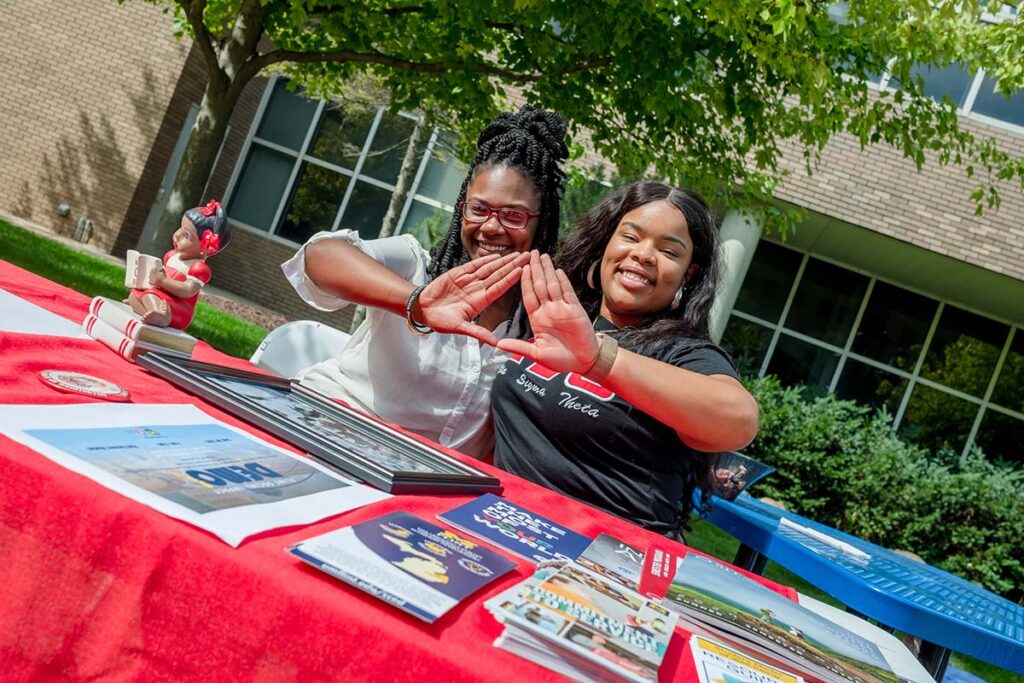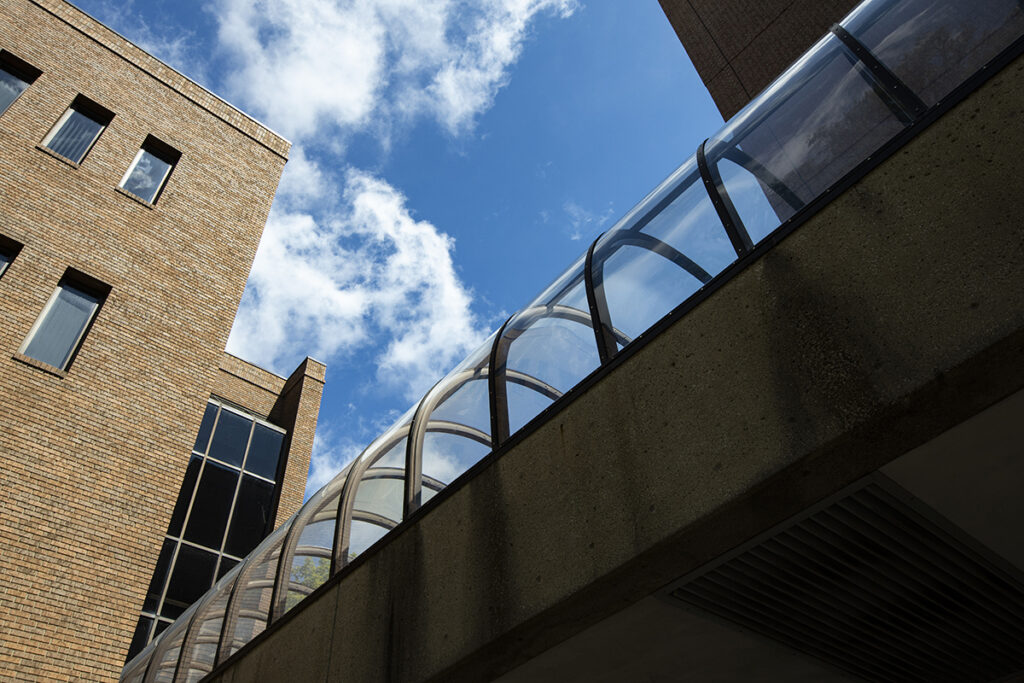Decoding common UM-Flint vocabulary

College seems to have a language all its own. Terms like "registrar" and "provost" are common across most schools, and the vocabulary keeps expanding once you pick the right school for you. Each campus has special words for its own buildings, offices, and services.
The same is true for UM-Flint. Here you might have a class in MSB, then get lunch in the UPAV. It's a lot to take in, especially when you're still considering big topics like which major is the best for your future. But don't worry—none of this is too complicated once you have the meaning behind the jargon.
This article, while not a comprehensive list, decodes some of the most common terminologies you'll hear in college, along with some specific UM-Flint acronyms and slang to help you hit the ground running as a Wolverine this fall.
The structure of UM-Flint
The University of Michigan-Flint is made up of schools and colleges. UM-Flint has six of those:
- CAS: College of Arts & Sciences
- CIT: College of Innovation & Technology
- CHS: College of Health Sciences
- SEHS: School of Education & Human Services
- SOM: School of Management
- SON: School of Nursing
These schools and colleges are further subdivided into departments. So if you choose to major in Psychology, you'll be a UM-Flint student, in the College of Arts & Sciences, in the Department of Behavioral Sciences.
People, titles, and offices

The top administrator of UM-Flint is the chancellor. Our current chancellor is Deba Dutta.
The chief academic officer for UM-Flint is the provost. Sonja Feist-Price serves as our provost and works to promote academic excellence throughout campus.
Each school or college at UM-Flint is led by a dean. If you perform well academically you can make the dean's list, which is reserved for students who earn a 3.5 GPA (among a few other requirements).
- Counseling and Psychological Services (CAPS): Provides confidential counseling services for free to enrolled students.
- Financial Aid: Helps you develop a plan to pay for your education, while the Cashiers/Students Accounts Office is where you make payments.
- Registrar: They're in charge of your academic record. The UM-Flint Registrar is Lee Cruppenink.
- Student Involvement and Leadership: The office that helps you get involved in student organizations (clubs).
- Student Success Center (SSC): Among the services SSC offers is supplemental instruction, which offers additional help in key courses led by highly qualified students.
In class
Many of your instructors will hold doctoral degrees like a PhD, others will have other degrees such as a Master of Fine Arts. If you're not sure what to call your instructor, professor is always correct.
Your courses can be delivered in an in-person, online, or hybrid (mixed) format. Online courses can be synchronous (meaning you meet in real-time virtually) or asynchronous (meaning you complete course expectations on your own time while meeting deadlines).
- Bluebooks: You'll need these small notebooks for in-person essay exams. They're available in several locations, including the library.
- Finals: Not every course will have a final exam at the end of the semester. Many will have a final paper or project.
- Full-time: Full-time students take 12 or more credit hours in the fall & winter semesters. Important for financial aid eligibility.
- General Education: A program to ensure you receive a well-rounded education by taking courses outside of your major.
- Laboratory: An additional course meeting time (mainly for science courses) that gives you hands-on experience with the curriculum.
- Prerequisite: A course you need to take before taking another course
- Syllabus: A document that holds the expectations and due dates for a course. Read carefully! Plural syllabi.
UM-Flint terms

Now that you know some of the basic terminology, let's take a look at some of the terms you'll hear as a UM-Flint student.
- BSU: Black Student Union (student organization)
- CAB: Campus Activities Board (student organization)
- Mcard: Your student ID. Keep it on you!
- MSB: Murchie Science Building
- M–Times: The Michigan Times (student newspaper)
- Rec Center: The Recreation Center has a fully equipped gym area, indoor track basketball courts, fitness classes and more
- SG: Student Government
- Skywalks: Tunnels connecting many campus buildings. Also called gerbil tunnels and hamster tubes
- UCEN: University Center. Houses the main cafeteria among many other services
- UPAV: University Pavilion. Offices, the bookstore, and more food options are here
There are plenty more terms to share, but this list is a good way to get started as a UM-Flint Wolverine. One of the best parts of UM-Flint is the friendly, community-based atmosphere embraced by faculty, staff, and students, so don't hesitate to ask anyone if you have questions. A good place to start might be your academic advisor.
Go Blue!
Related Posts
No related photos.
- College of Arts, Sciences & Education
- College of Health Sciences
- School of Management
- School of Nursing
- Student Life
- University News
Logan McGrady
Logan McGrady is the marketing & digital communication manager for the Office of Marketing and Communication.